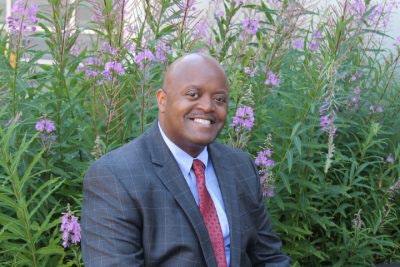As we embark upon a new year, it is important for education leaders to reflect on 2020 in order to assess what we got right, determine what went wrong, and then set a course for a more equitable education for all students in 2021.
 Dr. Marvin Lynn
Dr. Marvin LynnThe COVID-19 pandemic illuminated the multiple and complex inequalities that exist in our schools. In remote learning environments, students who were already disengaged from school, in some cases, became more detached and harder to reach, particularly the population of historically underserved and marginalized PK-12 students. Undergraduate programs in higher education experienced similar issues, as some students felt more marginalized and isolated due to not being in classrooms. The pandemic has taught us that educator preparation programs must instill in teacher candidates the importance of building relationships. If educators don’t develop healthy and sound relationships based upon mutual trust with their students, then it’s harder to teach—and definitely harder to reach—those students for whom school is not a positive experience.
Amid 2020’s global health crisis, we bore witness to incredible racial injustice followed by a powerful movement toward racial justice. As the call for racial justice echoed throughout our nation, an effort to ban anti-racist education and critical race theory emerged, making it difficult for educator preparation programs and other federally-funded agencies to offer professional development that draws on critiques of race and gender in the United States. I am a proponent of history and believe that educators must embrace an honest reflection of our nation’s past and be prepared to teach from that perspective. There is amazing work chronicling American history through the lens of various marginalized populations, not only the challenges they faced in this country but also the contributions they have made. For example, the African American experience isn’t just about slavery, lynchings, and other abhorrent acts, it is also about the Civil Rights Act, Brown v. Board of Education, and many other examples of how African Americans have moved this country forward. African American history is not just a story of horrors, it is also a narrative of great achievement that must be taught if we want students to appreciate the rich culture of our diverse nation. The same is true for all other diverse groups in this nation.
No matter where you live, you will be confronted with some form of diversity. Yet, in teacher education programs, we operate under the notion that the average student is white. We teach to that white middle-class student who speaks standard English and knows the middle-class rules. Ironically, we are learning that many white students don’t fit that boilerplate, because they come from rural communities, have experienced poverty, or one or both of their parents is an immigrant. In 2021 and beyond, educators must be prepared to teach all students and draw on their language, race, or cultural and socio-economic background as assets. Teachers must also understand the need to become advocates for racial justice—on behalf of and in solidarity with their students and families.
In order to better prepare future teachers, schools of education must understand who our preservice teachers are before they enter our programs. We must develop a process for identifying and recruiting students who will focus on supporting all children and possess the desire to be involved in a change effort that is inclusive. Then we must equip them with the tools and skills necessary to be effective in a variety of different contexts, so they can cultivate the intellectual richness of all students. The new year holds the promise of decimating the pandemic and honestly addressing longstanding issues of racial inequality. With the onset of 2021, I am hopeful that teacher education programs will embrace a culturally responsive and equity-minded approach to transforming education while principally taking up an anti-racist approach to addressing longstanding historic inequities.
Dr. Marvin Lynn is the dean of the College of Education at Portland State University.



















